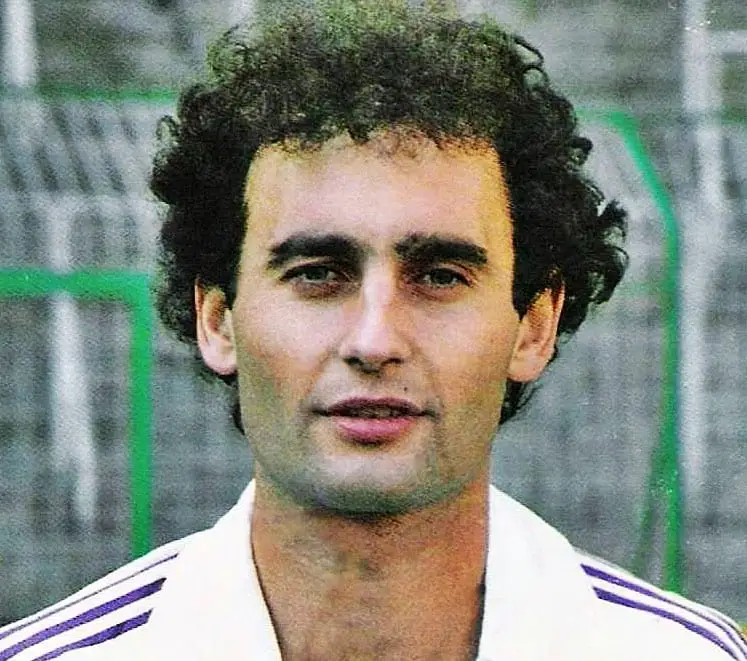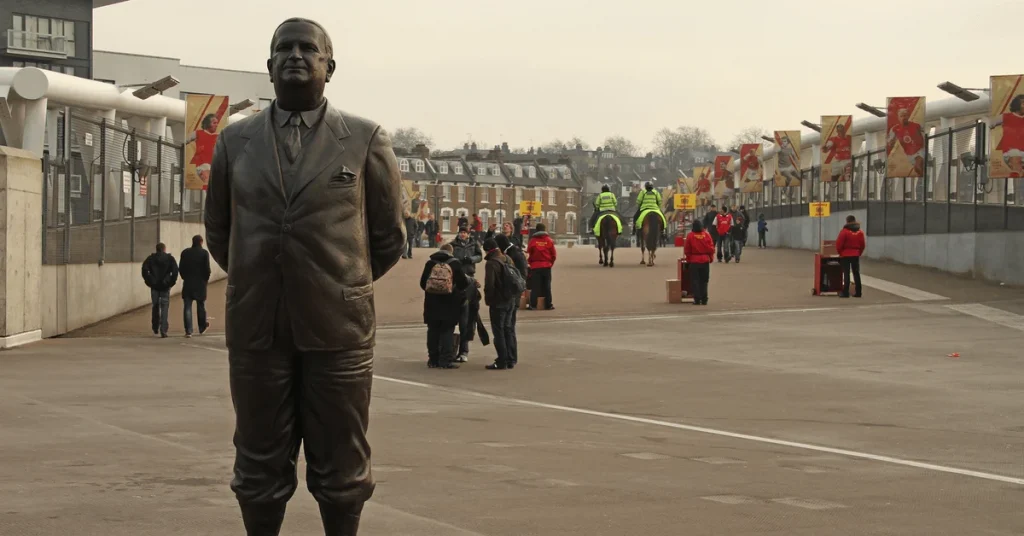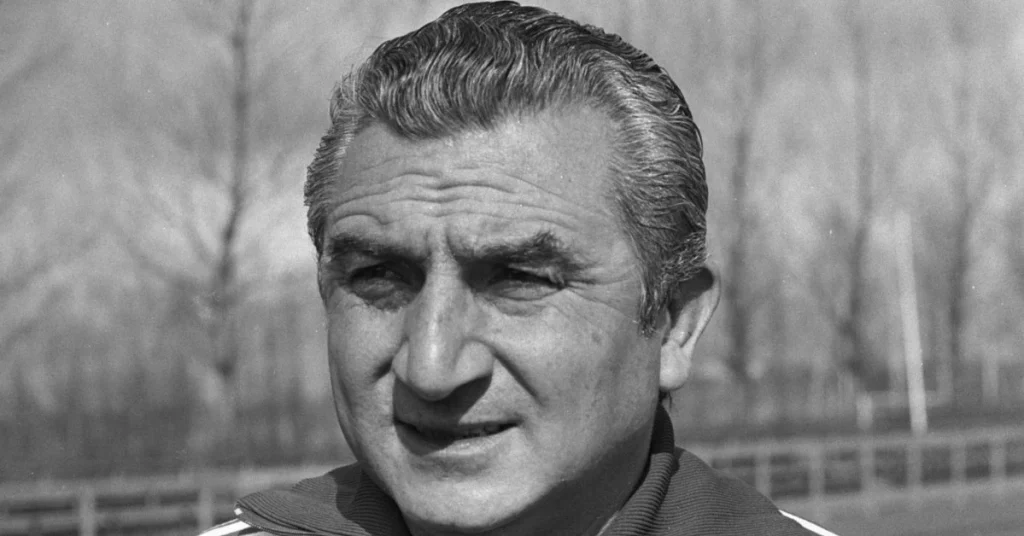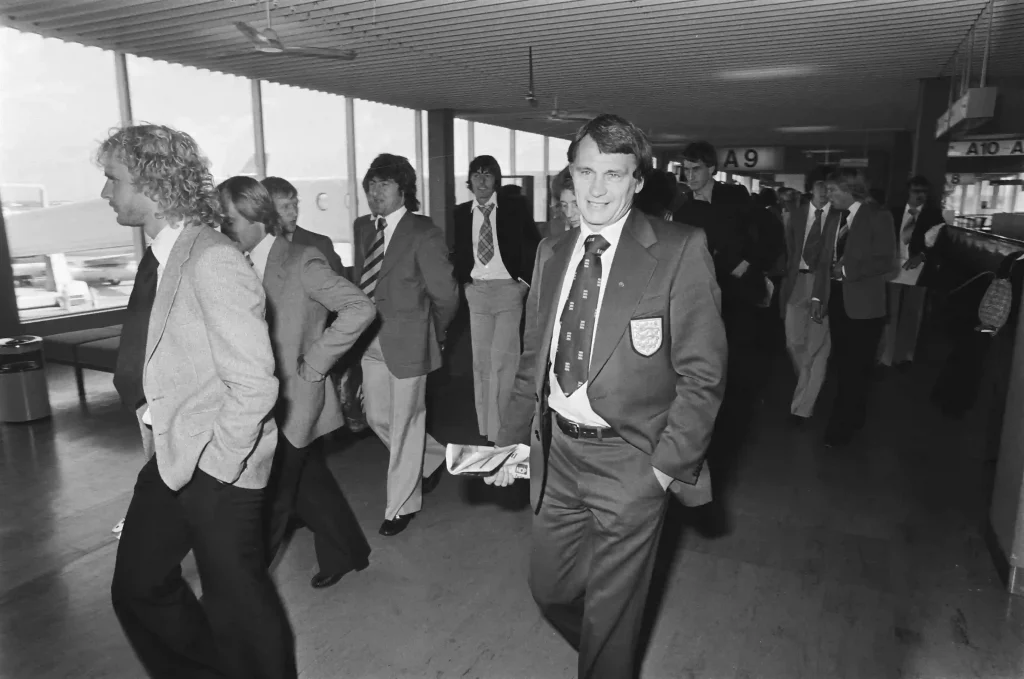Madrid has had many incredible players walk through and out of their doors, boasting a rich history of some of football’s finest talent.
However, as time has rolled on, some have not quite retained the same fanfare they held when they were players.
One such Luminary is Ricardo Gallego
Madrid legends aren’t hard to come by, but Gallego seems to slip through many of the cracks of football history. Well-revered in Spain of course, Gallego’s legacy is one of consistency and success, overseeing some one of Madrid’s greatest teams as he controlled the midfield while Butregueno and his cohorts took all the plaudits.
He was Real Madrid through and through, coming through ‘La Fabrica’, Madrid’s academy and battling through his formative years at Los Blancos’ B team Castilla.
This is the career of Ricardo Gallego, an unsung Madrid hero.
A Madridista From Birth
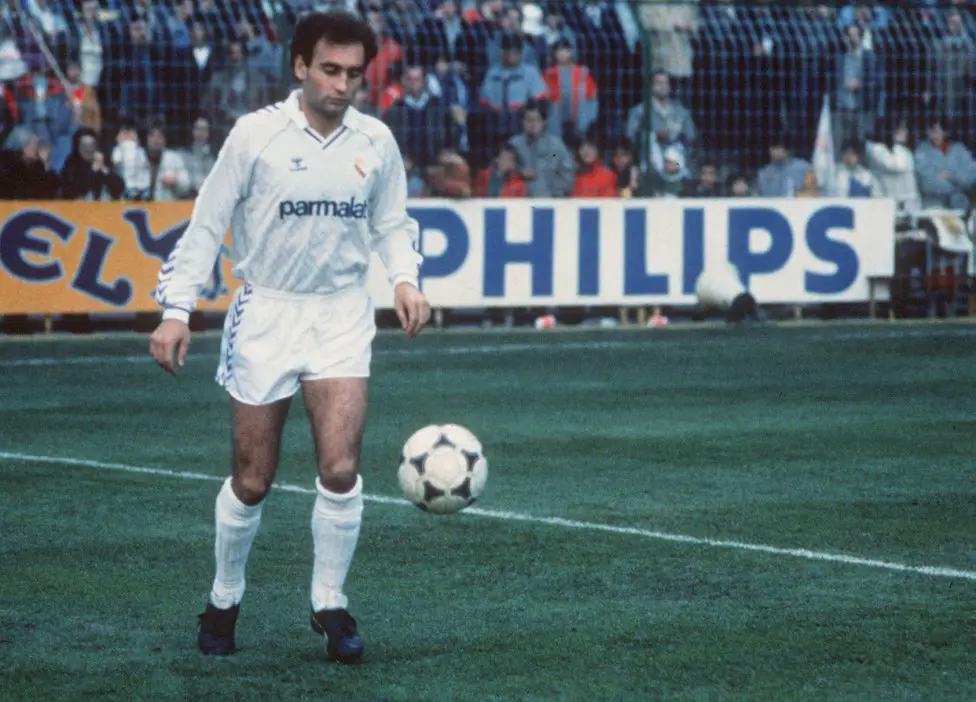
Naturally, he was drawn to football from a young age, Madrid a hotbed of football culture just as much in the 60s as it is now. His progression into football was fairly natural and without hiccups.
Signing for Madrid’s youth academy aged 13, he already showed a composure and footballing intelligence beyond his years.
With all the makings of a cultured midfielder who could become the heartbeat of any side, he repeatedly impressed as his development continued to show some real promise, steadily progressing on his football journey and eventually earning a place at Madrid’s B team Castilla.
The B team were the best in the country and were hoping to establish themselves as a second division side.
Though, this side wasn’t allowed promotion to the first division, on account of Madrid’s occupancy of the division and the obvious conflict of interests such a scenario would pose.
In Gallego’s first season, they achieved promotion to the Segunda Division, which was a huge achievement considering they’d only just gained promotion to the 3rd division the season before.
They had been stuck in the 4th division for the past 6 years, so this marked incredible progress for them.
The following season Castilla managed a 7th place finish, firmly cementing their place as a legitimate second tier side.
But Gallego could never have imagined what came next.
Forcing Madrid to Take Notice
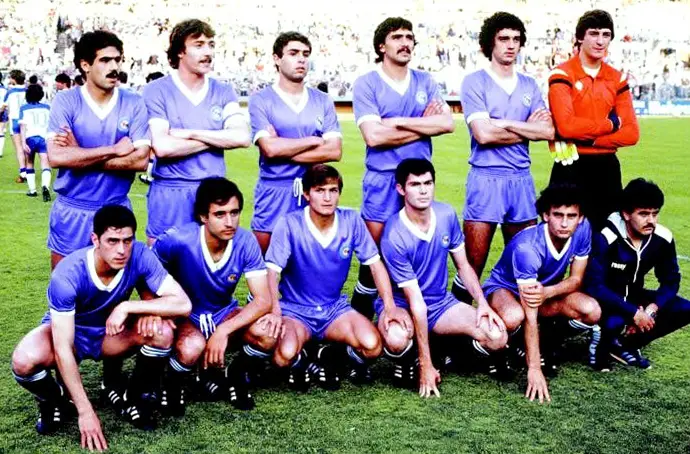
They’d avenge the senior team by beating Real Sociedad over two legs, running out 3-2 winners over the side that had trounced Real Madrid themselves 4-0 and were in 1st place in the league at the time.
Gallego would play a pivotal role from midfield. Their star player, the then 20-year-old played like a player worthy of a starting position in the senior team.
Scoring a crucial 4th goal in a 4-3 aggregate win over 3rd place Sporting Gijon, such a run was only possible through his midfield excellence.
They’d make it all the way to the final, where of course they faced the Real Madrid senior team. The resulting 6-1 thumping of Castilla, was expected, if not overkill.
The B-team players knew they were going to lose to their “superiors” as Gallego himself would explain: “The fact we had reached the final meant that Real Madrid were guaranteed to take us very seriously. The truth is that the 6-1 result is a reflection of the distance between us and them.”
Castilla and Gallego didn’t seem to mind the loss, celebrating with the senior team at the final whistle.
Castilla earned a place in the Cup Winners’ Cup, the equivalent of the Europa League now, but for Gallego, this would prove meaningless.
The next year he was finally moved to the Real Madrid senior squad.
It took 87 B team appearances, but at 21 he had proven himself ready.
His debut came in the first game of the season, coming on at half-time against Almeria, where he helped see out a 2-1 away win.
Debut made. His next mission: Score.
It came just 28 minutes into his debut, though regrettably how he scored seems to have been lost to the annals of time. Though I can tell you that Madrid ended the game having scored 7, to Bilbao’s 1.
Gallego had made it straight into the Madrid first team, and despite being just 21, played 26 league games that season, his only goal of the year coming in that debut against Bilbao.
However, he would have made more, were it not for an injury against Real Betis with just 6 games to go. Locked in a title challenge with Real Sociedad for a second time, the injury was a huge blow to the chances of holding their title.
But, Madrid still went on to win all 6 games, though sadly for Gallego it wasn’t enough.
Sociedad had won 5 of their last 6, drawing the final game with a last-minute goal that put Sociedad level on points with Madrid.
Madrid lost by incredibly fine margins. Despite having the better goal difference, Sociedad took the trophy as in Spain, the head-to-head record comes before goal difference.
Once again it was just a single goal that decided Madrid’s fate, as Madrid had won 1-0 at home but lost 3-1 away.
Gallego just couldn’t get his first trophy in a Madrid shirt.
Faltering to 3rd in the league, eclipsed by Sociedad again in 1st and rivals Barcelona, Madrid were adrift in a transitional state.
Madrid would win some silverware, however. A Copa Del Rey victory placated a poor season somewhat, but Galeego was injured for the game, making his first trophy with Madrid bittersweet.
The next year was no better.
So Close, Yet So Far
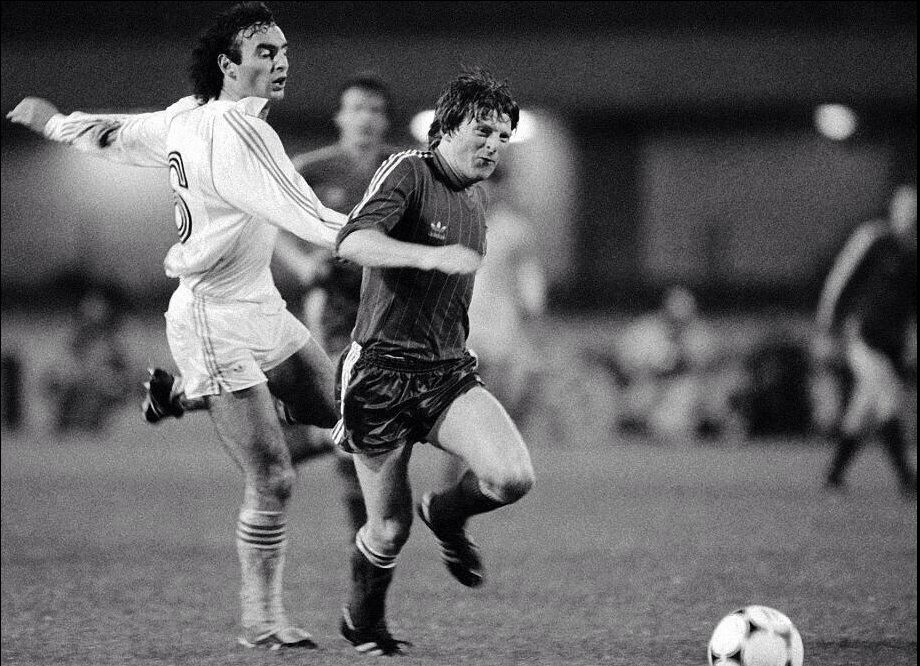
At the start of the season, Madrid had the chance of winning up to 5 trophies, including the two Supercopa.
Showing great promise in all three, with Gallego still in the centre of midfield, Los Blancos would collapse when it mattered the most.
In the league they lost by one point to Athletic Bilbao, losing on the final day of the season 1-0.
In the Copa Del Rey, rivals Barcelona would get one over Madrid in a 2-1 victory, the winning goal coming in the 90th minute, because of course, it did.
Then in the short-lived Copa De La Liga, Barcelona proved the better side again, winning over two legs 4:3.
In the European Cup Winners’ Cup, Madrid again prospered, reaching the final where Alex Ferguson’s Aberdeen awaited them.
They lost 2:1 in extra time.
And Finally, in the Supercopa, a two-legged, one-off match between last year’s league winner and last year’s Copa Del Rey winner, they lost to Real Sociedad 4:1.
Gallego and Madrid could so easily have done the unprecedented quintuple, but had their hearts broken each time as they came so close each time, but always fell dramatically at the last hurdle.
Gallego’s wait for a trophy continued.
Always next year, right?
Well, the next year was even worse. Far far worse.
Dumped out in the first round of European competition by Sparta Prague. Failed to reach any finals and again losing the title race to Bilbao, this time finishing level on points but once again losing on head-to-head record.
Gallego could not catch a break, and it seemed as his peak years dawned that he was stuck playing one of Madrid’s worst periods in their history.
There was some grace for Gallego however, by now he was one of Spain’s first names on the team sheets, and at Euro 1984, played almost every minute of a run that saw Spain face vs France in the final.
You can see where this is going…
It’s another failure, 2-0 to France and by now Gallego must be wondering what he has to do to win something and be on the pitch for it.
Madrid continued their slump…
A Change Of Fortunes
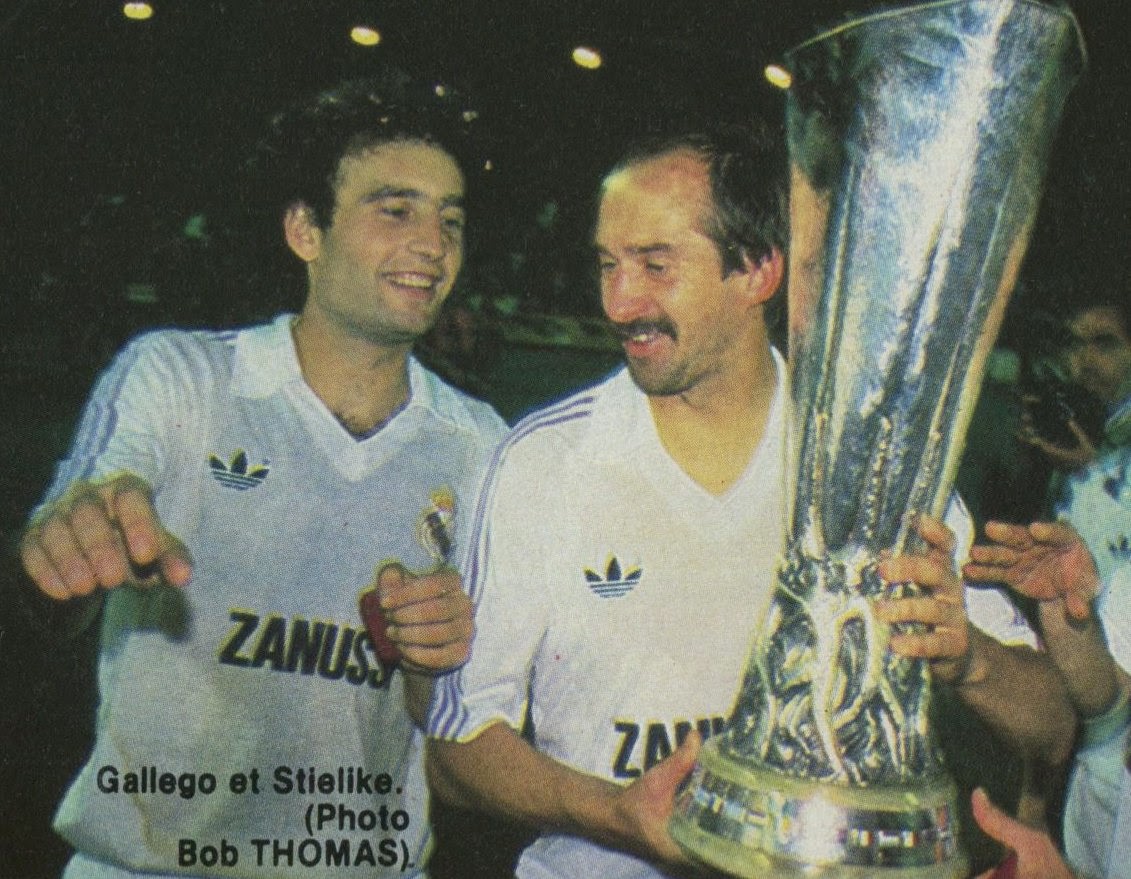
But, there was still some cause for celebration. A great performance in the UEFA Cup saw Gallego with yet another chance to play in a final and win.
This was Europe’s third-rate competition at the time, but Madrid still had to defeat Inter Milan on their run to the final.
Finals were still over two legs, but after a 3-0 win in the first leg were able to hold off Hungarian side, Videoton. But most importantly, Gallego was finally on the pitch to lift a trophy.
This European win was a sign of things to come. For all Madrid’s failures, Gallego’s next few years were looking up.
From the 1985-86 season, a new fearsome crop of players permeated the starting lineup, as Butregueno and pals tore the league to shreds, alongside Hugo Sanchez upfront.
All of a sudden, Gallego and Madrid went from perennial bottlers to winning machines.
With the side imbued with a rich vein of young talent, Madrid finally took home a La Liga title, as Gallego still maintained his place in the team.
The trophies were flowing. A UEFA Cup in 85/86. Another La Liga title the next year. Madrid held on to the league for a third year in a row in 87/88 and had re-established themselves as the best team in Spain.
But, by 1987, Gallego saw far less playing time.
He’d been a key player in their recent success, but after playing 37 games in the 86/87 season, he only appeared 18 times in the league the next campaign.
Despite a resurgence in 1989’s season where he played 27 matches, he moved to Udinese for 354,000 Euros.
In one of his last ever Madrid games, he was captain, in the Copa Del Rey final. In a poetic moment of karma, he’d lift the trophy he’d missed out twice on years earlier, a fitting end to a stalwart of this Madrid side for the best part of a decade.
All in all, he made 346 appearances for Madrid, scoring 26 times.
He only stayed at Udinese for one season, before returning to Spain to help second division side Rayo Vallecano to promotion.
He retired earlier than many, aged 33. Sensing his time at the top echelons of football was done, he gracefully left the sport to pursue directorial roles within football.
Gallego was Madrid’s torch that guided them through one of the most torrid times in the club’s history.
